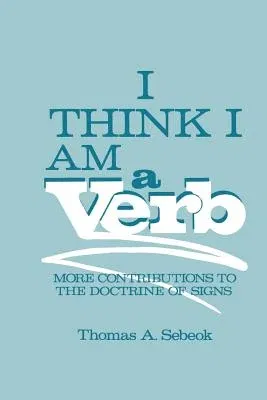My writing career has been, at least in this one respect, idiosyncratic:
it had to mark and chart, step by step, its own peculiar champaign. My
earliest papers, beginning in 1942, were technical articles in this or
that domain of Uralic linguistics, ethnography, and folklore, with a
sprinkling of contributions to North and South American linguistics. In
1954, my name became fecklessly associated with psycholinguistics, then,
successively, with explorations in my- thology, religious studies, and
stylistic problems. It now takes special effort for me to even revive
the circumstances under which I came to publish, in 1955, a hefty tome
on the supernatural, another, in 1958, on games, and yet another, in
1961, utilizing a computer for extensive sorting of literary
information. By 1962, I had edged my way into animal communication
studies. Two years after that, I first whiffled through what Gavin Ewart
evocatively called "the tulgey wood of semiotics." In 1966, I published
three books which tem- porarily bluffed some of my friends into
conjecturing that I was about to meta- morphose into a historiographer
of linguistics. The topmost layer in my scholarly stratification dates
from 1976, when I started to compile what eventually became my "semiotic
tetralogy," of which this volume may supposably be the last. In the
language of "Jabberwocky," the word "tulgey" is said to connote
variability and evasiveness. This notwithstanding, the allusion seems to
me apt.


